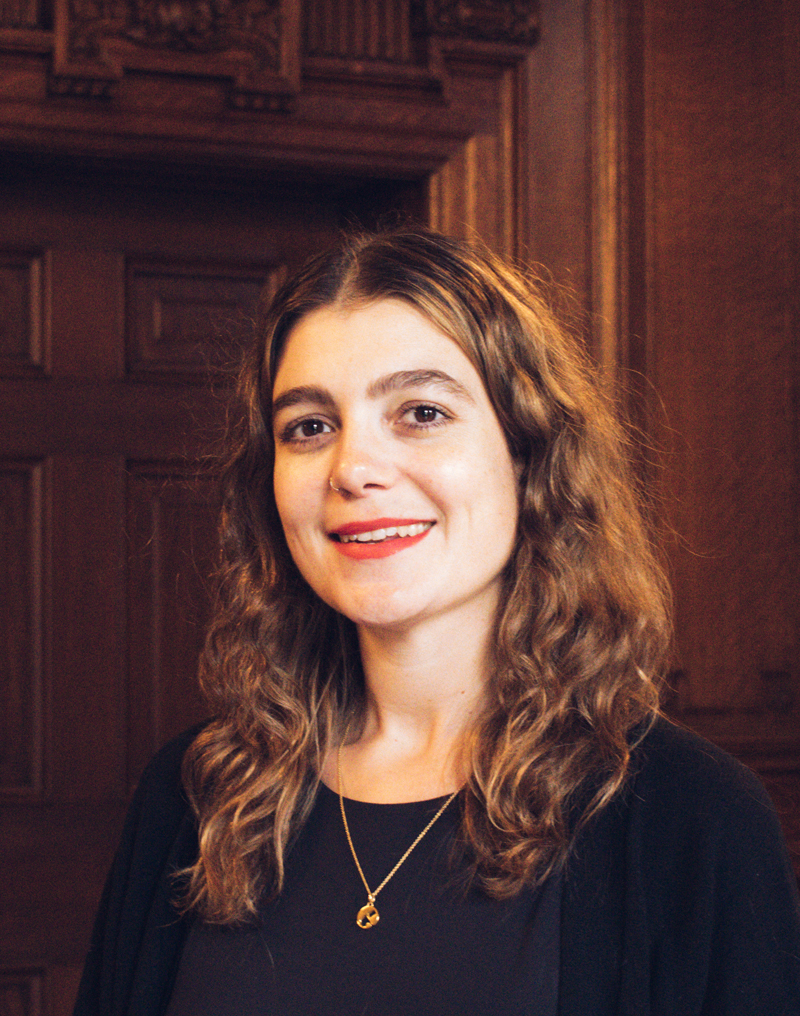Postdoctoral Fellow Emmanuela Wroth
by Roanna Kitchen, University of Toronto alum
Emmanuela Wroth is currently a Faculty of Music Postdoctoral Fellow at the University of Toronto, where her research focuses on 19th century French theater, music, gender and race. This research is graciously supported by an anonymous foundation, which has a mandate to facilitate a France-Canada Cultural Exchange. Wroth has a Master’s in Comparative Literature and Culture from the University of Cambridge and a PhD in Music and French from Durham University.
Wroth explains that she loves “recovering forgotten and marginalized histories, particularly those of people who've been erased…from history due to identity categories like gender, sexuality, class [etc.] ...But I also think it's really important work in terms of improving…visibility and access to people who've been marginalized historically and continue to be so.” In keeping with these beliefs, Wroth attempts to, “disseminate my work in other formats [outside of traditional methods like publications]. In the past I've spoken on podcasts, and I've been involved in the Edinburgh TV Festival and my PhD was in collaboration with a museum in the UK [called the Bowes Museum].” During her PhD at Durham Wroth’s research investigated predominantly French literature, gender, music and theatre in 19th century Paris. She attempted to answer questions such as, “What was happening on stage?”, “Who were the performers themselves?”, “What was the reception like?” In doing so, Wroth aspired to “recover the usually forgotten histories of the performers, [particularly] women performers…[and] their contributions to French theatrical history, music history and Western celebrity culture more broadly.” Wroth adds that she “found a really interesting way of restoring women to the historical record… [which was] looking at celebrity [typically female] performers who actually had really important contributions and…collaborators with writers and composers.”
Regarding her current work at the Faculty of Music, Wroth explains that her latest project “builds on my PhD research…I was restoring the stories of the popular theatres like hybrid musical theatre, vaudeville, melodrama [etc.] ... [My research] looked at sexualized and gendered performance practices in mid 19th century Paris…My postdoc builds on that but is also adding a racialized layer.” This was instigated when Wroth had “encountered quite a few interesting case studies…[of] women that were not white, [but rather] that were mixed race or black on the Parisian stage. Initially they were going to be part of my PhD project, but I realized quite quickly that they deserve their own project.”
Earlier in 2023 Wroth presented at The Centre for the Study of Nineteenth-Century Music (CSNCM) at the University of Toronto and published an article in French Studies entitled The Fashioning of La Dame aux camélias: Eugénie Doche’s Creation of Marguerite Gautier. She also has a book chapter coming out with CUP in their A New History of Theatre in France. Co-authored with Clare Siviter the title is New Approaches to Women Actors and Celebrity in Nineteenth-Century France [which has both connections to her PhD and postdoc research].” Additionally, Wroth is, “working on developing my PhD dissertation into a book” as well as considering composing a second book on her postdoctoral research. Alongside Professor Sarah Gutsche-Miller, Wroth is planning a conference in spring of 2024, with a focus on “19th century French theatre…or French music theatre. [It] may well have a focus on questions of exoticism and erotic racialization because those are…shared research interests of ours.”
“Making history less white, less male, [and] less elite is what I’m doing… [while attempting to make] diverse communities feel represented and…see their own histories being told.”
- Emmanuela Wroth
Wroth explains that “during my PhD I co-founded and co-chaired the Decolonizing Modern Languages and Culture Research Group at Durham University… [This group] made recommendations to the Decolonized Durham Working Group, which was a group of faculty members. [They also established] ...a reading and writing group, speaker… and podcast [series].” This connects to Wroth’s goal of wanting to disseminate her research on forgotten histories and make it more widely accessible (i.e., through television, radio, media). Regarding the lasting impact of her research, Wroth states that “the types of communities that I'm researching from the 19th century…have been marginalized across gender, class [and] racial boundaries. Making history less white, less male, [and] less elite is what I’m doing… [while attempting to make] diverse communities feel represented and…see their own histories being told.”

